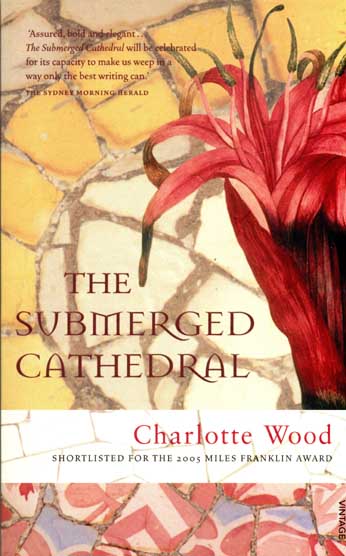
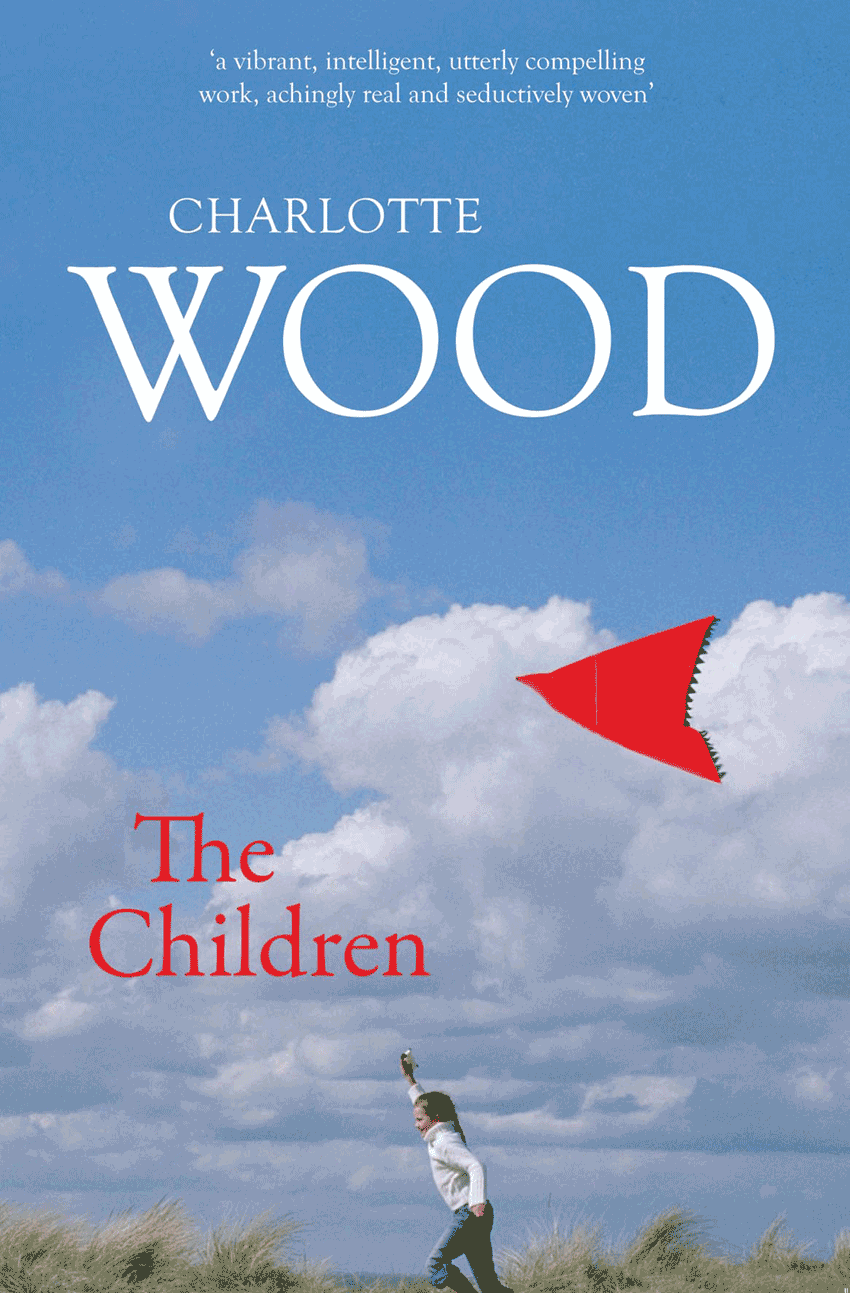
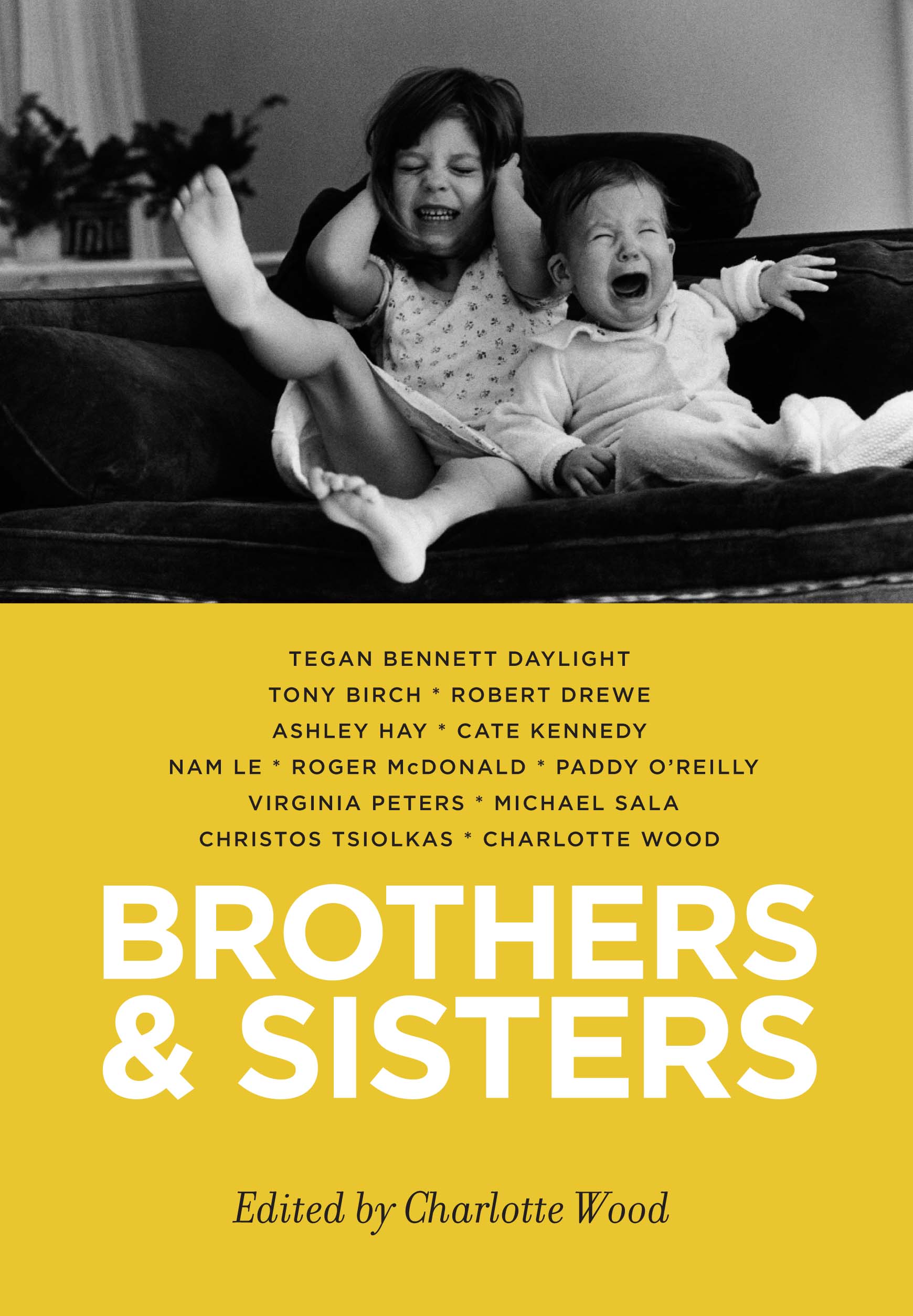
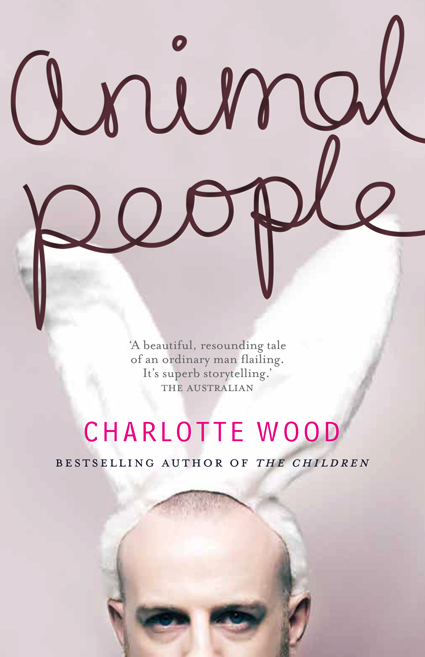
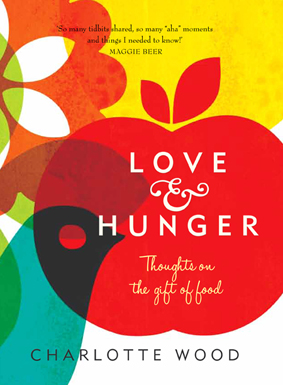
Animal People
Reviews • Reading group notes • Interviews & articles
 Prizes
Prizes
A sharply observed 24-hour urban love story that follows Stephen Connolly – a character from Wood’s bestselling novel The Children – through one of the worst days of his life.
On this stiflingly hot December day, Stephen has decided it’s time to break up with his girlfriend Fiona. He’s 39, aimless and unfulfilled, but without a clue how to make his life better. All he has are his instincts – and they may be his downfall.
As he makes his way through the pitiless city and the hours of a single day, Stephen must fend off his demanding family, endure another shift of his dead-end job at the zoo (and an excruciating workplace teambuilding event), face up to Fiona’s aggressive ex-husband and the hysteria of a children’s birthday party that goes terribly wrong.
As an ordinary day develops into an existential crisis, Stephen begins to understand - perhaps too late - that love is not a trap, and only he can free himself.
Hilarious, tender and heartbreaking, Animal People is a portrait of urban life, a meditation on the conflicted nature of human-animal relationships, and a masterpiece of storytelling.
The novel invites readers to question the way we think about animals – what makes an ‘animal person’? What value do we, as a society, place on the lives of creatures? Do we brutalise our pets even as we love them? What’s wrong with anthropomorphism anyway? Filled with challenging ideas and shocks of recognition and revelation, Animal People shows a writer of great depth and compassion at work.
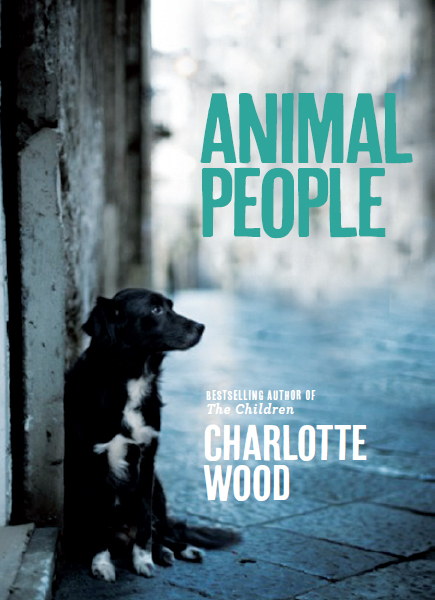 Australian Book Review - December 11/ January 2012 - review by Miriam Zolin
Australian Book Review - December 11/ January 2012 - review by Miriam Zolin
"Wood is a consummate observer of the human condition. She distils the dynamics of families and the interactions of daily life, and writes about them with honesty and restraint. It would be a mistake to imagine that the suburban setting and the themes of relationship and disconnection result in a lack of muscle. She communicates the detail of Stephen Connolly’s internal life so clearly that his mistakes begin to resonate with the reader; Stephen’s sense of disconnection and anxiety may be extreme, but he does become a kind of everyman, or everyperson. You don’t have to be a man to empathise with Stephen Connolly. His core dilemmas are universal. Wood frames them in a character whom it would be easy to dismiss in the hands of a lesser writer."
The Australian - review by Rebecca Starford, October 2011
Profound scope in zoo of humanity
"Charlotte Wood is one of our finest and most chameleonic writers ... Wood's novels are often uncomfortable explorations of Australian life: seemingly modest in their ambition, the narratives are profound in their emotional scope. ... Wood handles [her territory] brilliantly, working a poignant and unexpected thread about the neighbour's dog through the story. We first encounter Balzac, an elderly german shepherd losing his sight, early on. Stephen shrinks from the animal, from the unabashed love owners Jill and Nerida effuse; he "could not fathom this kind of love". When Balzac reappears, it's during the final, cataclysmic scenes, and it's a twist that's shocking and deeply moving ... Whether Stephen can transform from this stilted, atomised position to being a functioning adult is what drives an enjoyable and at times surprising novel. This is a beautiful, resounding tale of an ordinary man flailing. It's superb storytelling."
Full review here
Sydney Morning Herald - review by Claire Scobie
"Animal People is the arch, poignant and funny story of Stephen, a no-hoper whose life unravels before his eyes as he is powerless to stop it ... As the novel builds towards its climax, Wood's writing, consistently inventive and tightly crafted, notches up the lyric register and keeps the suspense. A few pages out from the end, I groaned. No, it can't be over yet. When I finished, I wanted to start it all over again."
Full review here
Overland journal - review by Clare Strahan
"I’ll confess it. I’m an animal person. Vegetarian. More likely to pat your dog than coo over your baby and/or Kindle. Secretly, I’ll wish I had the guts to free your bird (deterred by the knowledge that it would likely be a brief flight to certain death). I have dogs, cats and a Buddha statue sits on the grave of my old dog who died, at 17, in March (on my birthday) and, yes, I sometimes light a candle. Still.
But no one likes an aging German shepherd’s nose to prod where it doesn’t belong. And living with dogs myself, I can’t abide the thought of their poo-eating tongues slurping wilfully at my face, either. Which is undoubtedly where my sympathy with Wood’s flawed and hapless protagonist, Stephen, begins. And it is certainly through the agency of dog that it blossoms into an empathy so profound that when I finished the novel, I sobbed into my pillow with the raw, impossible vulnerability that is ‘being human’."
The Age - review by Angela Meyer, October 2011
"The reader will recognise these ideas and perceptions about the world, about the city we live in, the people we see and the people close to us. Animal People represents the existence (and even the necessity, for coping) of this private world of thoughts and encourages us to shake it up once in a while. To write more about the animals and their place in the story would be to take away some of the pleasure of reading it. One image that has remained is the way Stephen compares Fiona to a ruby-throated hummingbird: ''If you waited, if you carefully watched, she might show you a glimpse of this gorgeousness, this vividness.'' This is a compelling and ultimately moving novel that cements Wood's place as one of the most intelligent and compassionate novelists in Australia."
Full review here
Sunday Tasmanian - review by Anna Forward
"Wood's style is all intelligent observation. She maintains a sympathy for her characters even when their world seems grubby and hopeless. She weaves startling, specific descriptions into a plot without ever stalling or sounding pretentious. I found her descriptions of older people and upset children particularly moving, capturing humanity at its best and worst. Wood's books are an intimately rendered portrait of contemporary Australia and, as such, prompt readers to think about some of this country's real issues."
Adelaide Advertiser - review by Katharine England
"Stephen's difficult relationship with animals is exacerbated both by his incomprehension over other people's expectations of them and by the discrepancies between the world's treatment of pets and outcast humans ... It is the [neighbours'] alsatian that eventually and most movingly crystallises Stephen's understanding of the essential relationship between human and animal, but not before his long day has escalated into those realms of familial tension that Wood explores with such fidelity and insight. Her bullies are cringe makingly familiar, her portrait of an overwrought child a tour de force of observation and empathy, and Stephen's response to the situation wrings the reader with its delicate balance between what the man is so effectively and sensitively doing and the way it may be interpreted by an unsympathetic observer. The limitations of the time-frame mean that the novel is even tighter and more nuanced than Wood's highly acclaimed previous work; its theme is enhanced by a wealth of subtly animal-themed metaphors wet-eyed children with star-fish lashes, a woman like a ruby-throated hummingbird and its heart-tugging climax is unexpected, reassuring and deeply satisfying."
Readings Monthly - review by Jo Case, September 2011
Charlotte Wood’s The Children is among my favourite Australian novels: she’s just so good at the dynamics of relationships and minute social observations that give worlds of information about the people and places she captures. Wood's writing reminds me of Helen Garner’s, in that it’s easy to read, but deceptively so: it’s rich with ideas and absolutely distinctive in its voice.
So, I was pretty excited to receive Animal People, which follows one (monumentally bad) day in the life of middle-aged man-child Stephen, as he prepares to break up with his girlfriend. Stephen was a character in The Children, and others moonlight here too, but you don’t need to have read that novel to thoroughly enjoy this one. This is at once a novel about Stephen, and his relationship with girlfriend Fiona and her two girls; and about urban life, with our relationships with animals (and all the absurdities those relationships often entail) as a recurrent theme. Stephen works at a zoo kiosk; he is determinedly unambitious and a bit hopeless. He often says the wrong thing in social situations, he unwittingly wears chef’s pants (because they’re comfy), and must duck the exasperated attentions and expectations of his eternally disappointed mother and sister. Yet, he’s an utterly lovable character – gauche and irritating, but big-hearted. The mystery at the core of this novel is why Stephen wants to break up with Fiona: their relationship is imperfect, yes, but it’s also affectionate, genuine and touching. The answer seems to lie in Stephen’s palpably human insecurities.
Animal People may centre on a pending break-up, but it’s a romantic comedy of sorts, with some wonderful observational humour – particularly at the children’s birthday party in the final third of the novel. Thoroughly recommended; it made me laugh and cry. What more could you ask for?
Why I can't review Animal People - John Purcell, Booktopia
"I felt I had been dismantled, cleaned and reassembled by the novel. The novel did not change me. It reintroduced me to the important parts that make up who I am. And this is why I have had such difficulty writing about Animal People. To write a review is to accept that this book is like the last book I reviewed. That Charlotte Wood’s reason for writing is much like any other novelist’s reason for writing – to tell a story. Well I can’t do that. I feel that Charlotte Wood is an artist, a thinker, an observer, a chronicler, a radical whose work has great value above and beyond the standardised judgements of our day. Wood is writing literature of the kind which hopes to hit upon universal truths using only the simplest and most delicate tools. Animal People is not a long novel. It follows one man as he makes his way through a single day. But even so, within these pages Wood examines some of the loudest issues of our time – terrorism, materialism, social inequality, social welfare, animal cruelty, isolation – and the quietest – love, despair, commitment, loneliness, honesty. In brief, her little novel stalks the greatest of subjects, the human condition. How we live, how we love and how we communicate. And she does so with prose that is spare, considered, beautiful and graceful."
Read full text of 'Why I can't review Animal People' here
Bookseller & Publisher Magazine, September 2011
Stephen is a man living an almost adolescent life. He has a crappy job at a zoo cafe, rents a small flat and the state of his bed sheets doesn't bear thinking about. He also has a loving girlfriend but he's about to dump her, commitment being out of his emotional range. The story takes place over a single day from hell that begins with Stephen accidentally hitting a junkie with his car. Despite working at the zoo, Stephen is not an animal person, and finds the fixation people have with their pets mystifying. A visit to what he thought was a toyshop for children turns out to be a pet shop where they sell 'Tushie Wipes' for dogs and cats.The bizarre nature of this scene fits perfectly with Stephen's day. I think we all know someone like Stephen for whom the real world isn't a good fit; someone you sympathise with but also want to shake. Clever and compassionate, Animal People will appeal to anyone who likes a story about relationships.
Four stars.
- Heather Dyer, Fairfield Books, Melbourne
The Book Nerd Club, August 2011 - blog review
"This book is a comprehensive exploration of one man who on the surface, is a low achiever and can't do relationships, but at times, seems like the only sane person in a world gone mad. He's the voice of reason, compassion, vulnerability, and our responsibility to each other. In the eyes of modern society those things that make him a brilliant human being are unseen, and not valued. But not by everyone; some people see it and it means everything to them.
"It's also an exploration of the minutiae of modern Australian city living - and in this, our detachment from each other and the callous disregard for each other's well being.
"The best of literature does more than entertain, it reveals something to us about ourselves, and this certainly happened for me in reading this book. It gave voice to the part of me that feels that detachment and doesn't like it. It gave voice to the parts of me that are the best parts of Stephen and made me consider how much I value those things about myself compared to my 'achievements', and give them free expression in my interactions with others.
"Do your higher self a favour and read this book :-)"
Questions for reading groups & book club discussion, compiled by Caroline Baum.
Click here to download a printable
PDF.